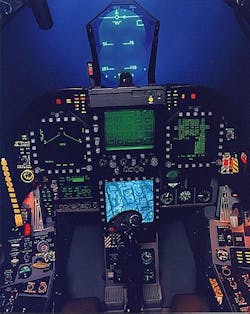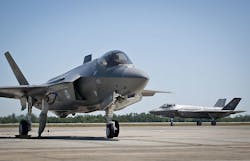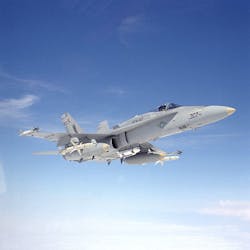NSA certifies Rockwell Collins MILS encryption device, enables interoperability of new and legacy aircraft
CEDAR RAPIDS, Iowa, 22 April 2015.National Security Agency (NSA) officials have issued Type 1 certification for Rockwell Collins new Multiple Independent Level of Security (MILS) encryption device and architecture: KOV-74.
“This milestone achievement is the result of more than six years of working with the NSA to develop a common airborne and ground MILS device, capable of processing multiple independent channels of high-rate data, classified up to and including Top Secret,” explains Tommy Dodson, vice president and general manager of Surface Solutions for Rockwell Collins. “For example, it allows the F-35 Lightning II, a fifth-generation platform, to securely interoperate with other equipment at lower-classification levels, such as a fourth-generation F/A-18.”
The KOV-74 is a high-assurance programmable cryptographic product capable of protecting Unclassified through Top Secret data simultaneously. It is ruggedized, miniaturized, and designed for a variety of operating environments, such as ground, mobile, and tactical airborne. The 4-channel device can be configured for single-level to multi-level operation (TS-U), and when combined with Rockwell Collins’ high-assurance data guard, provides a complete MILS distributed security architecture.
KOV-74 was developed to maximize commonality among range instrumentation systems for test and evaluation (T&E) and training applications, is Cryptographic Modernization-compliant, and enables secure, cross-domain interoperability between networks, platforms, and U.S.-Coalition operations of differing security levels as part of the Common Range Integrated Instrumentation System (CRIIS).
Rockwell Collins has been testing the capability since 2012, teaming with the University of Iowa’s Operator Performance Laboratory and its L-29 aircraft during that time.
“We’re producing hardware in our factory, installing and getting ready to test at Naval Air Station Patuxtent River and Eglin Air Force Base in 2015,” Dodson adds. “We’re excited to begin using this technology to help our military customers develop MILS Live-Virtual-Constructive training concepts to help F-35 pilots train more efficiently, and with legacy aircraft.”
Rockwell Collins develops and deploys communication and aviation electronic solutions for both commercial and government applications, and has expertise in flight deck avionics, cabin electronics, mission communications, simulation and training, and information management.



